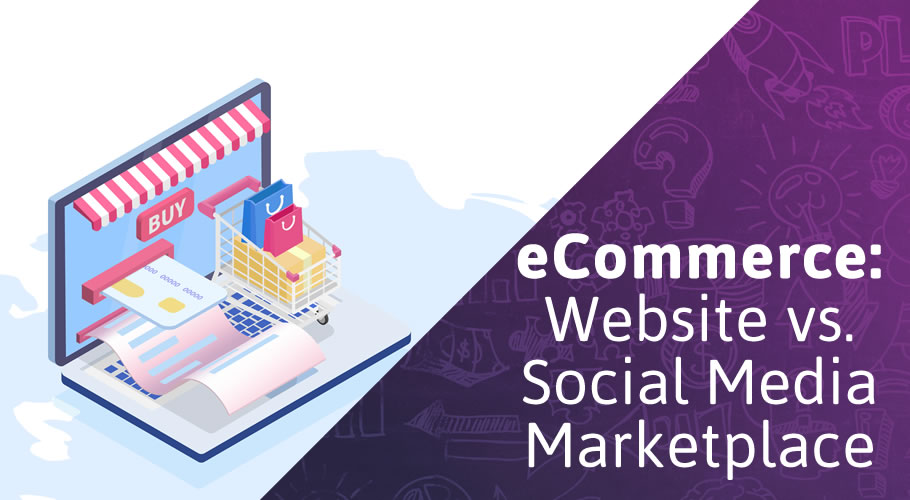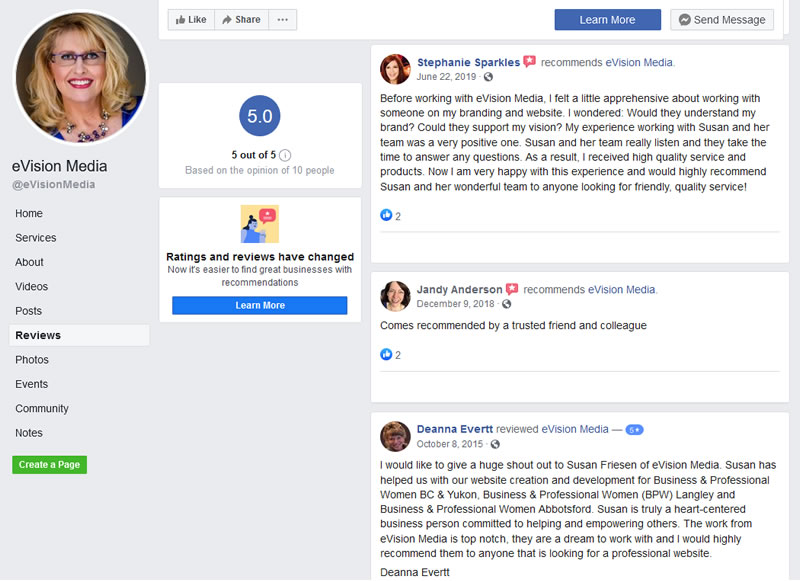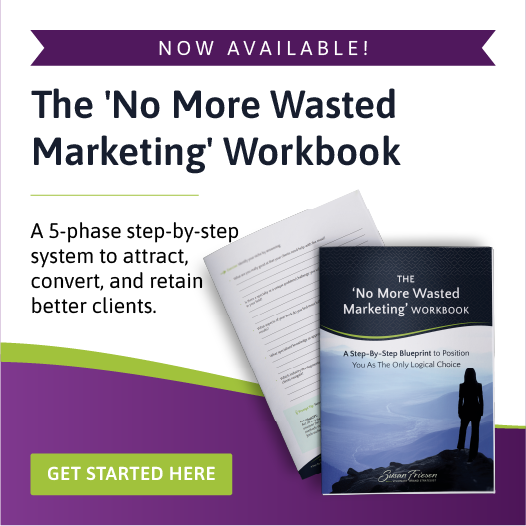The Difference Between Social Media Selling & eCommerce
Over the past few weeks, I’ve shared some tips on improving your eCommerce website as well as some of the different ways to sell on social. This week, I’m going to help you choose whether you should focus on selling on an eCommerce store or opt for a social media marketplace.
But first, a quick refresher:
- Selling on an eCommerce store means you’re selling products or services on your own domain. You’re responsible for everything from web design to creating compelling content and managing SEO.
- Selling within a social media platform or marketplace involves utilizing the platform’s selling capabilities to actively market your products. Generally, if someone clicks, they’re driven back to your website to complete the purchase.
You’ll have to figure out how to process transactions either way and install shopping cart software or drive buyers to a third-party site like PayPal.
Here are some of the marketplaces you can sell on:
- Facebook Shops: Allows you to add products in different categories, communicate with customers and get insights around data.
- Facebook Messenger: While still a part of Facebook, this involves communicating with customers (either manually or with chatbots) to reach your target audience. My latest AMPLiFY! training tells you all about how to use Facebook Messenger marketing to your advantage, including all about chatbots.
- Shoppable Instagram posts: You can tag brands and products in organic Instagram posts, then your audience can tap to see more details and buy the product.
- Pinterest (stats show that nearly half of all users are logging onto the site just to shop).

See how Mr. Clean Canada uses Pinterest’s “DIY Crafts” section to promote its Magic Eraser.
The Differences Between Selling on an eCommerce Store & Social Media Marketplace
Now, if you’re selling on an eCommerce store, you can use a combo of SEO, content marketing and paid ads to drive traffic to your products or services. Because you can use your branding and content to your advantage, this can offer a more authentic experience to your customers.
If you’re using an online marketplace, it’s less time-consuming. The platform is already there, and you’re populating it with your images, copy and products/services. It may be easier for some small business owners to engage with their audience on a site like Facebook, Pinterest or Instagram vs. growing visitors to their website organically.
However, the competition is high. You’re competing against many other brands, both big and small. Your company could get lost in the noise, so to speak.
You’ll also often pay a fee to sell. For example, the selling fee on Facebook Shops is 5% per shipment, or a flat fee of $0.40 for shipments of $8.00 or less.
So what’s a small business owner to do?
READ: Your Guide to eCommerce Social Media Marketing.
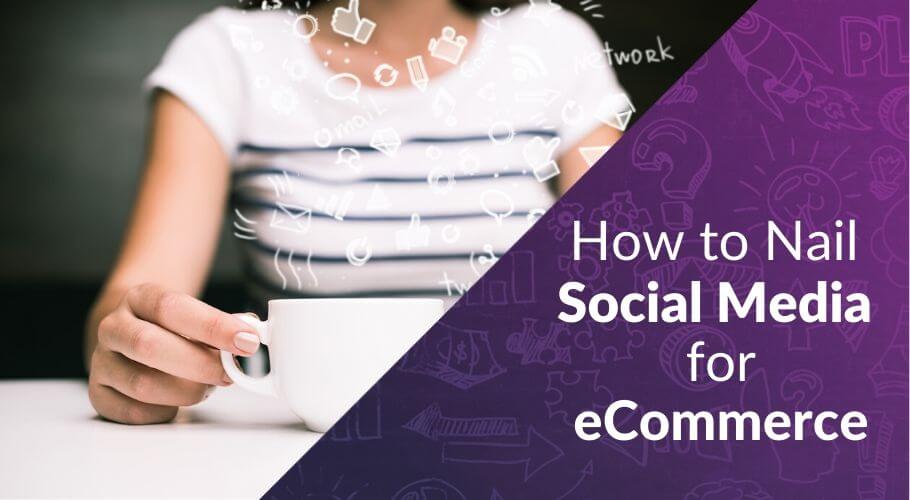
Your social media accounts aren’t just platforms for sharing content and engaging with visitors to accomplish those goals. From Facebook to Instagram, it can be a powerful way to market your products and services to your followers.
But despite these statistics, many small business owners still don’t understand the value of using these popular platforms to sell. That’s why I created this guide: to not only help you understand how important eCommerce social media marketing is, but to give you actionable tips to drive traffic, leads and sales.
Sell on eCommerce First & Social Media Second
I recommend you start out with a website that allows people to buy what you’re selling on your own site. Then, as part of a bigger strategy, if it makes sense to your target audience, you can use a service like Facebook Shops to increase the size of your audience.
I don’t advise you to only sell on a third-party platform. Here’s why:
- You have far less control over technical issues. If something breaks or the service goes down, it could create a negative experience for your customers—and you may not even know it.
- If you are having a technical difficulty or issue with your online store, you’ll have to connect with the site’s third-party customer support vs. contacting your web development company.
- There can be marketplace limitations around how your business can brand itself. Your own site allows you complete control over the visuals, content, coding, videos and of course, SEO.
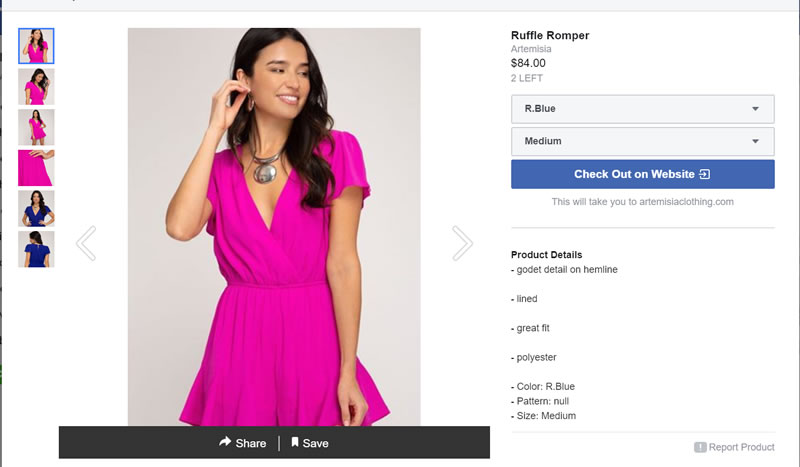
Canadian retailer Artemesia Clothing uses Facebook Shops to sell their stylish dresses.
4 Tips for Selling on eCommerce or on a Social Media Marketplace
While there are some important differences between selling on a third-party platform or on your own eCommerce store, there are some similarities in how you should approach things.
1. Build, don’t push.
Focus on building relationships, not pushing your products or services on people. You’ll have to spend time nurturing relationships and growing engagement, whether that’s through in-depth blog articles on your site or replying to comments on Facebook.
2. Know your customers.
There are so many questions that can help you understand your buyers. Who’s your target audience? What networks are they active on? Do they leave reviews? Do they prefer to consume video content or written content?
3. Understand your website weaknesses.
You’re driving potential customers to your site, so make sure it’s at its best. If traffic isn’t converting into leads or sales, it might not be your paid ads or product images.
Check your CTAs, look for broken links and take a long, hard look at your navigation. Also, check your Google Analytics data to learn what’s working and what isn’t.
4. Listen to your customers.
Whether you’re selling on social media or through your website, your reputation depends on how you treat your customers. Monitor your comments, answer questions and complaints promptly and keep tabs on online reviews on sites like Google My Business and Yelp.
We are always happy to see the kind reviews on Facebook from our happy clients!
So there you have it: if you can, take both approaches to connecting with your target audience! These two tactics can really complement each other and be a key part of your multi-channel marketing strategy.
However, there’s more to the process than buying a domain name and loading your site with products or services or creating a profile on a social media marketplace.
Hiring a professional marketing company can save you both time and money. Contact us today to learn how we’ve helped many small business owners succeed.
To your business success,
Susan Friesen
P.S. If you liked the article, you might want to subscribe to our newsletter. We publish tons of valuable content to help you learn more about marketing, and subscribing is the best way to ensure you don’t miss out. Additionally, if you’d like to learn more about building a search engine optimized website, click here for our free website guide.
